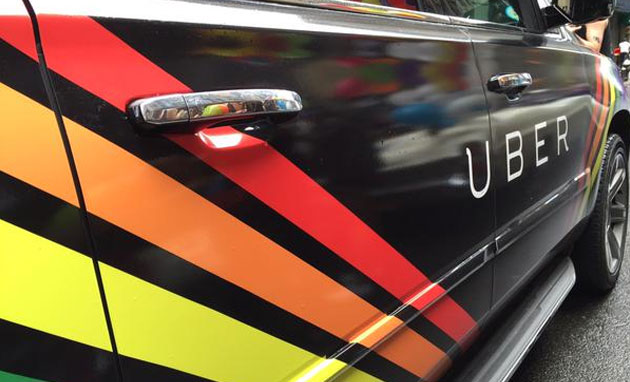
Uber to start accepting cash payments across India

 Uber Technologies Inc will soon accept cash payments for rides across all 22 cities that it operates in India, as per a press statement.
Uber Technologies Inc will soon accept cash payments for rides across all 22 cities that it operates in India, as per a press statement.
The ride sharing app said today that it has rolled out cash payment facility for users in Bengaluru and Delhi. Soon, it will enable the service in Mumbai, thereby extending the cash payment offering to all cities.
"We're thrilled to enable cash as a payment option for our riders today, especially on a day when commuters across India might find it difficult to get around in their cities. With Cash as another payment option, riders have more choice in terms of payment, in order to help them move easier from point A to point B," said Bhavik Rathod, GM, Uber Bangalore.

Cash payments were initially piloted by Uber in Hyderabad and then extended to Ahmadabad, Chandigarh, Jaipur, Kochi and other cities.
Known for its cashless payment functionality globally, the introduction of cash payments is viewed as an attempt to establish a stronger foothold in a market where credit card penetration is low.
On the Uber app, Users need to select 'cash' as payment method before requesting a ride. Users can pay the amount directly to the driver at the end of the ride, the statement said. However, part payments using cash and mobile wallet won't be possible.

Since the cash payment option is being slowly rolled out, Uber said that not all users may be able to avail this functionality immediately.
Last month, the company had joined hands with telecom major Bharti Airtel for allowing its riders to pay with mobile wallet service Airtel Money. The San Francisco-based Uber also has a tie up with mobile wallet firm Paytm for cashless payments. Before that, it resumed accepting credit card and debit card payments in India by tweaking its app for the two-factor authentication (2FA) flow that the Reserve Bank of India (RBI) mandates for all card-based payments.
PTI adds:

In a surprise development, a young Indian woman allegedly raped by an Uber driver in New Delhi last year "voluntarily" dismissed the lawsuit she had filed in a US court against the web-based taxi company.
In a very brief notice filed yesterday in US District Court, Northern District of California, the woman's lawyers submitted that "Plaintiff Jane Doe hereby voluntarily dismisses the above-captioned action against defendant Uber Technologies with prejudice. Each side shall bear its own costs, expense expenses, and attorneys' fees."
Since the Indian woman was not named in the lawsuit, she was identified as 'Jane Doe'.

There was no further mention in the court papers about why the case was dismissed and under what terms.
The woman's attorney Douglas Wigdor could not immediately be reached for a comment.
The woman had filed the lawsuit against Uber in January this year alleging that Uber does not adequately screen its drivers and its "negligence and fraud" lead to her being sexually assaulted and humiliated.

She had sought an unspecified amount of damages and compensation for the "physical and monetary" harm and the damage to her "professional and personal reputations" the assault had caused.
Following the filing of the lawsuit, Wigdor had said that Uber's focus on its "bottom line over the safety of its passengers has resulted in what can only be described as modern day electronic hitchhiking".
"...We intend to hold Uber responsible for the significant physical and emotional harm it has caused to our client, while simultaneously seeking a court order mandating that Uber initiate certain safety precautions that they appear unwilling to do voluntarily," he had said.

The lawsuit had said that had Uber done a basic background check on its driver Shiv Kumar Yadav, it would have found that Yadav had provided fraudulent documents and had a "known propensity" for "violent and deviant conduct, including numerous arrests for rape and assault.
The lawsuit had described in detail the night of December 5 when the woman was allegedly "raped and sodomised" by Yadav.
It said Yadav repeatedly threatened to kill her and warned that if she yelled or tried to escape, "he would insert a metal rod inside her," alluding to the horrific December 2012 gang rape of a student.
